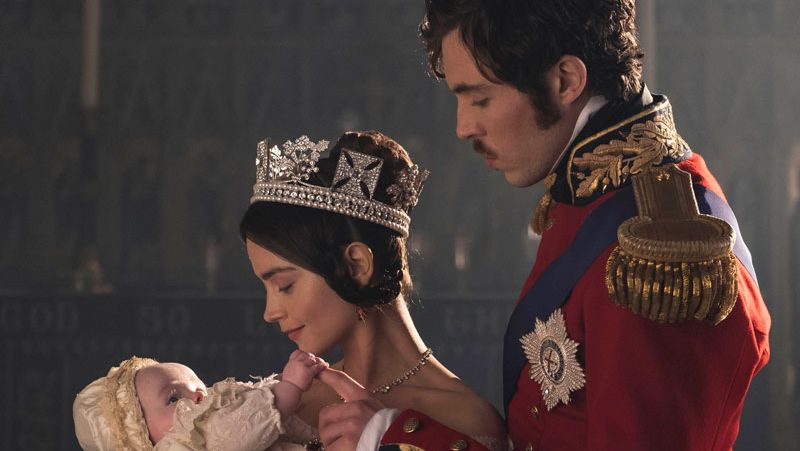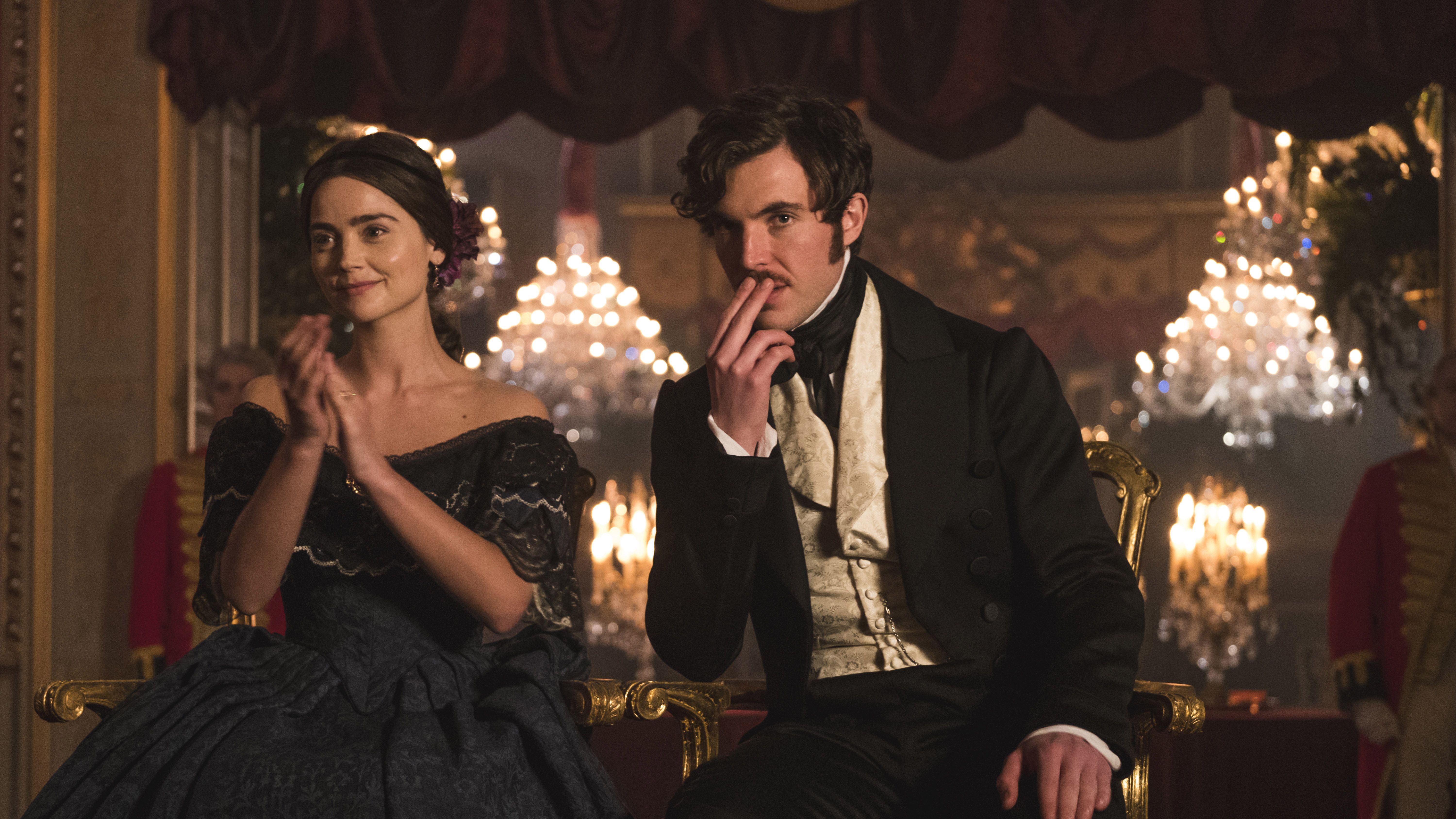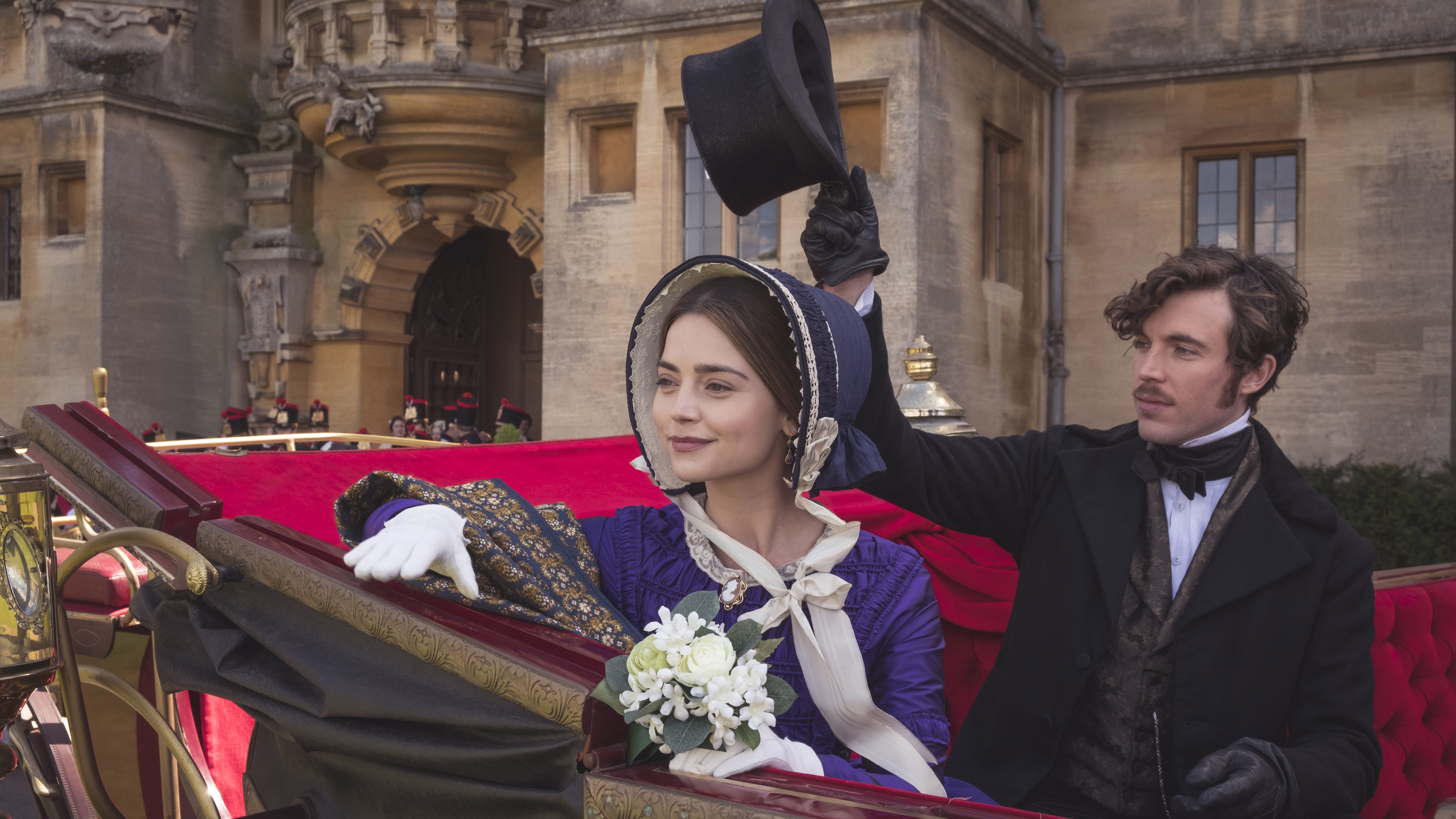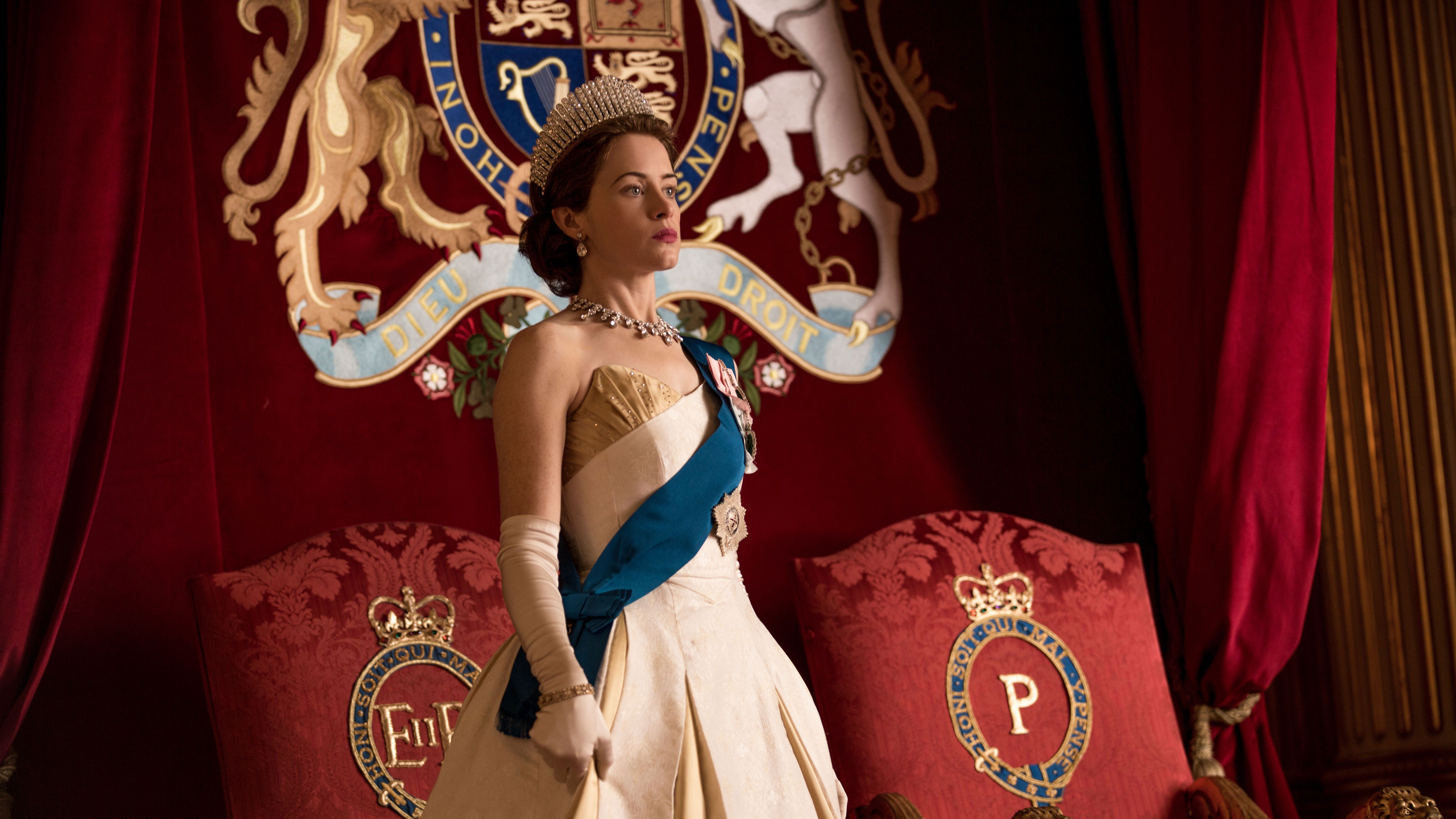Jenna Coleman Gives Us Details on Victoria and Albert's Passionate Romance in 'Victoria' Season 2
"He used to carry her from the room, put her into bed, and read to her all the time."

Thanks in part to a certain upcoming wedding between Prince Harry and Meghan Markle, people are even more obsessed with the British royals than usual. And now—hot off the heels of The Crown—comes Season 2 of Victoria, an absolutely beautiful look at the life of Queen Victoria and Prince Albert, and more significantly, a stirring glimpse at what it was like to be a woman in power.
Season 2, while packed with stolen kisses and dreamy sighs between Albert and Victoria, also highlights Victoria's struggles with postpartum depression, the fact that she was relegated to the nursery when she wanted to do her job (relatable), and her constant uphill battle with the controlling men in her life (also relatable).
MarieClaire.com spoke to Jenna Coleman about the show's stunning second season, so get ready to nerd out over all things royal.
On Victoria being expected to unofficially quit her job and focus on her kids after giving birth (which UGH, still happens today):
"In so many ways we've moved forward, but the same conversations are going on today—160 years later. Victoria was the first queen who was also a mother, and it's really, really fascinating. There was an assumption of, 'Well she's pregnant, once you've had a baby you have to be confined, lie down for a month, and have everyone do everything for you.' And, of course people thought she should step back away from her role—which Victoria vehemently pushed against. Having fought so long for her independence, she didn't easily give it up. She wasn't resentful of her children, but she was resentful of her pregnancy in many ways. It's quite a complex relationship and not something I've seen on screen before."
"He was always very romantic. He designed jewelry for her. They wrote music for one another."
On bringing the truth about Victoria's postpartum depression to light:
"It wasn't a medical diagnosis at the time—I don't even think they knew it existed. What's extraordinary is, Victoria was an avid diarist. She wrote in her diary without fail every single day. So after the birth of Bertie she stopped writing. There was no diary entry for over a month. For Victoria, that is so out of character. Her first diary entry back, she basically writes, 'It's far too painful to even discuss, and it was an incredibly distressing birth.' It's very out of character for Victoria to not be vocal about something. I think whatever happened with birth and what she experienced afterwords was deeply distressing. She's always the driver, she's always the one moving the plot forward. To see Victoria so reduced I found really interesting. Her dialogue is quite sparse and she was really unlike herself."

On Victoria and Albert never losing their passion:
"It was really important for us to show that in those early years of marriage there was a thunderous clash of wills. They were deeply devoted and loved each other, but they had horrific rows because obviously they're operating in a business sphere as well as a marital sphere. They're both new to marriage and have never lived together before, but I read something really gorgeous about Albert—how when Victoria was pregnant, he used to carry her from the room, put her into bed, and read to her all the time. And also—this is quite amazing—he was the first male to be present at the Queen's birth. Men weren't usually present, but Albert was there while she gave birth. It tells you so much about Albert and their relationship. He was always very romantic. He designed jewelry for her. They wrote music for one another."
On the relationship between Edward Drummond and Lord Alfred, and why it was so important for the show to include a LGBTQ relationship despite it not necessarily being rooted in history:
"Imagine how prevalent being gay must have been in society, and how complicated it must have been if you were gay, and you knew you had to marry a woman because society dictated so? Because professionally there is no way you could ever be who you really were? I think it's very important that these stories are told in some way. In terms of storytelling, it's very rich and important."
Get exclusive access to fashion and beauty trends, hot-off-the-press celebrity news, and more.

On aging Victoria and Albert as the show continues, and whether Albert's death will be featured:
"We think about at what pace we do the show, and at what rate we do it. Do we have to deal with the passage of time? Absolutely. Currently we're only up to Victoria and Albert's mid-twenties; they're still young. Going forward, we have to feel like we're growing with them—and think about how we do that visually, etc. I don't know yet how we're going to handle Albert's death, but it's going to be hard to not cover it."
RELATED STORY

Mehera Bonner is a celebrity and entertainment news writer who enjoys Bravo and Antiques Roadshow with equal enthusiasm. She was previously entertainment editor at Marie Claire and has covered pop culture for over a decade.